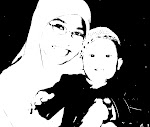Prior knowledge acts as a lens through which we view and absorb new information. It is a composite of who we are, based on what we have learned from both our academic and everyday experiences. (Kujawa and Huske, 1995)

Students learn and remember new information best when it is linked to relevant prior knowledge. Teachers who link classroom activities and instruction to prior knowledge build on their students' familiarity with a topic (Beyer, 1991) and enable students to connect the curriculum content to their own culture and experience.
Prior knowledge influences how the teacher and students interact with the learning materials as both individuals and a group. It is the proper entry point for instruction, which should build on what is already known, and a major factor in comprehension--that is, making sense of our learning experiences. (Kujawa and Huske, 1995)
Teachers can use class discussions and graphic organizers to activate and illustrate students' prior knowledge. Such dialoging and visualizations also encourage students to think about their thinking (What do I do in a particular situation and why?), transferring the thought process to a conscious level.
By tapping their students' prior knowledge in all subject areas, teachers can plan lessons that will: clarify incomplete or erroneous prior knowledge, determine the extent of instruction necessary in a particular topic area, and discern necessary adjustments to planned independent activities and assessment materials. (Kujawa and Huske, 1995)
Teachers also can use prior knowledge to make instruction more meaningful. Many researchers (Peshkin, 1992; Protheroe & Barsdate, 1992; & Lee, 1992) emphasize the importance of incorporating parallels between a student's cultural background and the curriculum's design. As the world changes, students must learn to understand and appreciate the experiences and contributions of people from different backgrounds. A culturally responsive education links curriculum, instruction, and assessment to the students' experiences, language and culture, in other words, to their prior knowledge.
The challenge is to find the knowledge and practices in family and community life that have a common orientation with what the schools seek to teach. Luis Moll and his associate's research on "funds of knowledge" finds just such a relationship in Hispanic communities; other researchers find application in different cultural settings (Au, 1992; Gay, 1994).
Finally, understanding the student's abilities is as important to effective instruction as selecting the appropriate instructional materials. The Vygotskian (1978) notion of "zone of proximal development" suggests there is an optimal challenge level for learning, one that is neither too difficult nor too easy and meaningful to the learner beyond the classroom. Thus, teachers should direct and guide the student through the instructional task until he or she can successfully complete it without any help. Palincsar and Brown approach instruction in a similar way, encouraging within the classroom the type of natural instructional dialogue that occurs between children and adults outside of school.
http://www.ncrel.org/sdrs/areas/issues/students/learning/lr100.htm
Wisdom to Teach NHAM09




No comments:
Post a Comment